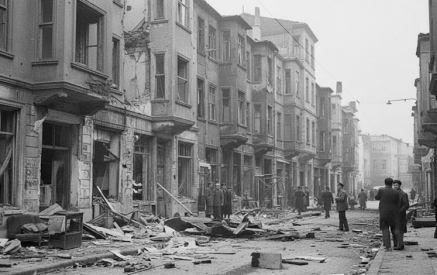Recently, a famous statesman Vladimir Darbinyan passed away. As appropriate, for such cases we appreciate the positive contribution of this statesman and first of all, the construction of the Sardarabad memorial. Generally, when it comes to Armenian national, state and political figures, we first of all should stress the positive things they have done. Not forgetting, of course, the negative. Recalling what the Soviet Union, and particularly, Soviet Armenian militia represented itself, as well as the party district committees. One should neither censure nor praise the past and its figures. The past and the present should be looked at with a cool and sober glance.
Yesterday, my father recalled how one of his colleagues passed away during one of the severe winters of the early 90s, he was fallen down in the street and was frozen, hours later he was found dead. But the matter was about the tragic fate of a specific person rather that political generalizations. Because there were also good and bright events in those years. There is a layer of Armenians, who on hearing such stories compress their fists and began cursing the PANM. In vain, it is the history of our nation with Communist, PANM and the following powers.
When people say that this is the brightest (or the gloomiest) page of our history, they, as a rule, generate from their subjective perceptions, in other words, from the fact how their or their relatives deeds were arranged. And when it comes to further past, we are based on the stereotypes formed in the course of decades, and perhaps, centuries. It is indeed a hard and “indigestible” topic, and people’s feelings can be hurt here, but for the centennial of the Armenian Genocide, it’s worth especially to think of the sober and non-emotional assessment of the past.
Dutch historian and philosopher Johan Huizinga wrote that the history should be studied not by a primitive desire to “learn lessons”, but to see what is not transient. Therefore, he recommends giving up the idea of “driving force”. Every event has several causes, and when we single out the one, then usually we adjust our assessment to the persons and the features to our ideological preferences and personal tastes, and more often to prejudices. The same, of course, can be said for any, including non-historical event or a figure. The hardest part, of course, is to give up the preferences, and moreover, the prejudices.
Read also
ARAM ABRAHAMYAN























































